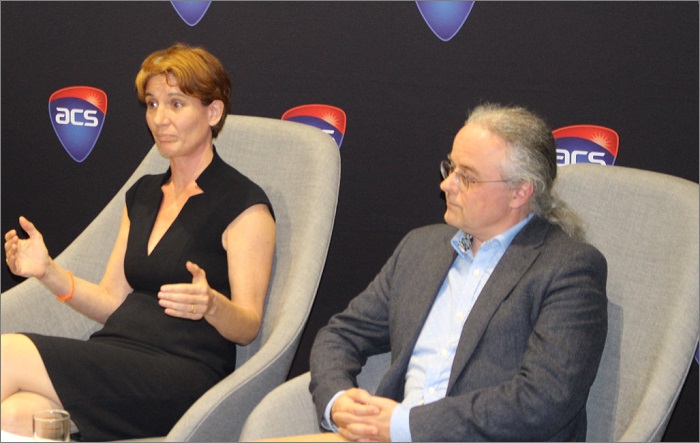We need to rethink how our right to privacy has changed as a result of new technologies and data-hungry services – or risk being left behind.
That’s one message from the first of a new Australian Computer Society (ACS) event series called Think Tank.
Held last Thursday, the event saw a panel of experts and attending participants discuss the nature of information privacy in a data-driven world.
For Aurelie Jacquet, Chair of ACS’s AI Ethics Committee, the very notion of privacy has been upended by digital technologies in recent decades.
“Privacy is dead, long live the new version of privacy,” she told the in-studio Think Tank audience and virtual participants.
“There’s a strong evolution happening with technology like AI that mean data isn’t just about information – it’s changing to be about inferences, about insights.
“No longer is privacy about just you as a person. There’s a growing push to say it’s also about communities, and that privacy laws should cover inferences made about groups of people.”
Dorotea Baljevic, co-lead for the Cognitive and Analytics practice for consultancy ISG, said it was worth recognising how extreme individual rights to privacy might impact social improvement.
“Philosophers argue that we should have human rights for privacy, but then we are species – so we can't live alone, we can't be isolated,” she said.
“For our evolution, we do need to have a certain level of sharing to continue to grow. We obviously don't want that to be abused, but we want that for development and innovation.
“That’s where that discussion needs to not just be had with legislators, but an interdisciplinary group of people."
Stephen Hardy, Vice Chair of the ACS Data Sharing Committee, agreed and went as far as questioning when we have the right to say ‘no’ to data about us being collected and analysed.
“Think about the benefit that comes from the Census, really understanding what the population is like,” he said.
“Having better knowledge of what's going on in terms of health, the environment, all these sorts of things are all driven by data.
“That data, when it's aggregated properly and safely, can be collected in ways that doesn't tell you something about the individual.
“I think that public benefit means that there are cases where people should not have the right to refuse to share the information. That's my personal view.”
Aurelie Jacquet and Stephen Hardy had a healthy debate about privacy at the ACS Think Tank event.
Jacquet pushed back on Hardy’s position that it was inherently necessary for us to give up our data and that consent was still an important consideration.
“I do think, yes, ultimately we want a society where we can leverage data that is going to help us grow,” she conceded.
“The problem is currently that we have zero guarantee the data we give is being used for the purpose we've given it.
“In some cases, we have no choice. Think about using a bank – you need to consent to giving the bank your data otherwise you don’t have an account.
“Consent in a privacy world has never been the first mechanism for obtaining data.”
Hardy broadly agreed with Jacquet’s point, and called the current ways we typically consent to data being collected and used a “pantomime”.
“At the moment there are no ways of guaranteeing that data will only be used for the purpose that you’re releasing it for, that’s certainly true.
“I don’t think that will remain true over the next 10 years. But there’s a lot of work to be done in building systems that can do that.”
A recording of the first ACS Think Tank will soon be available on the ACS Member Portal.











